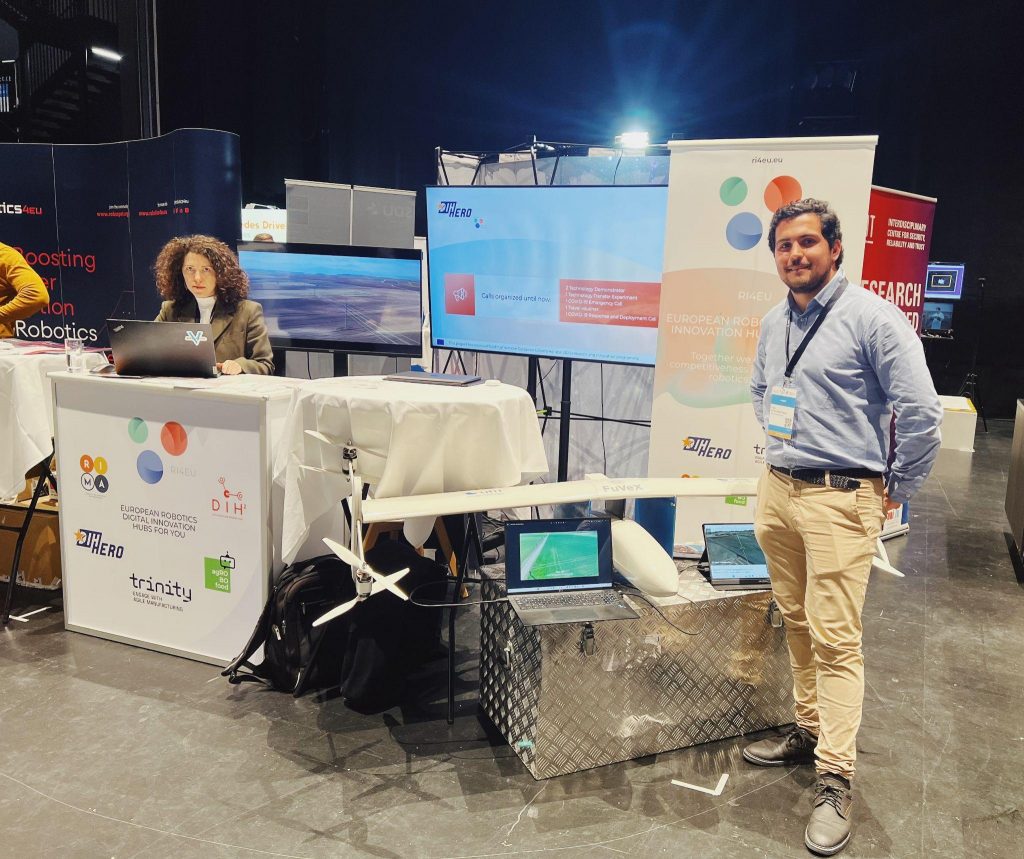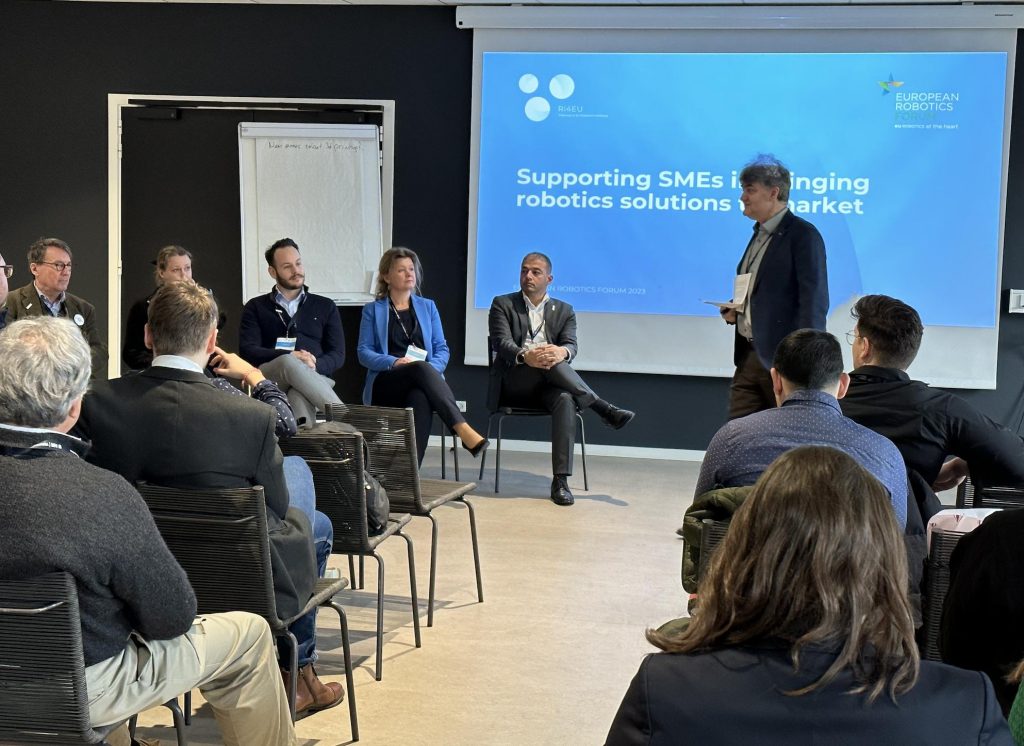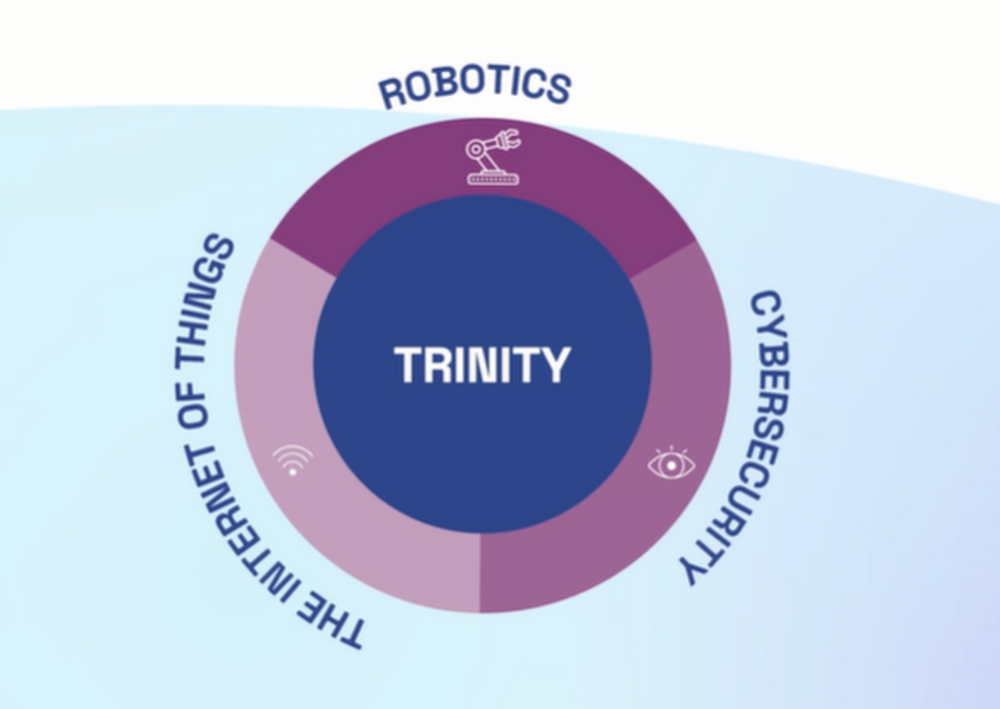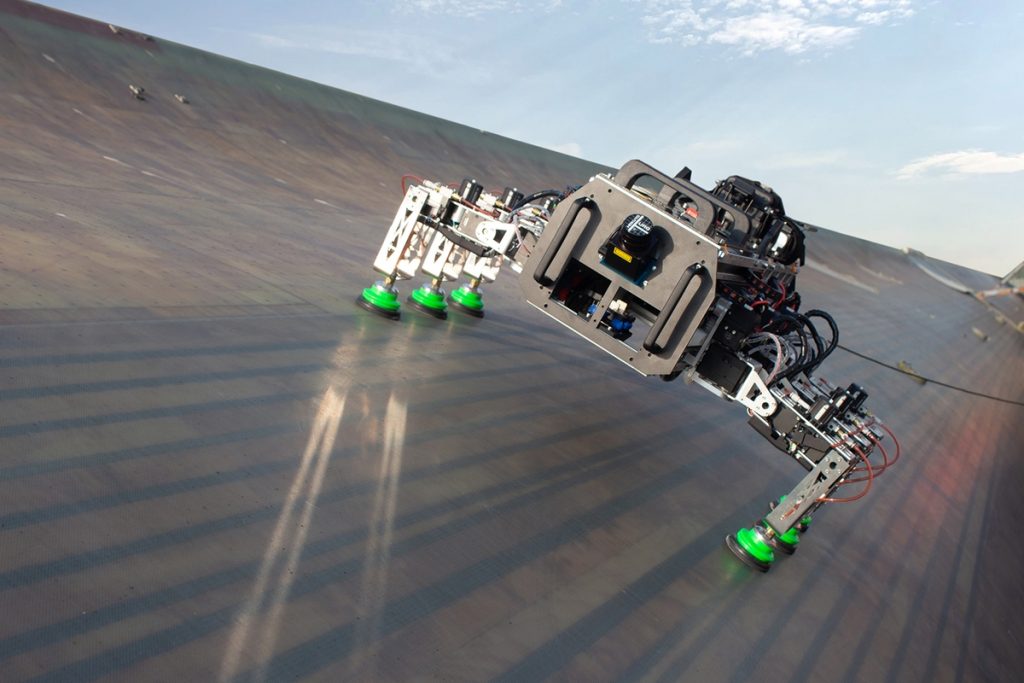Earlier this spring, the largest robotics event in Europe – The European Robotics Forum 2023 (ERF23) – was held in Odense, Denmark. As one of the most influential gatherings of the robotics community in Europe, the event brought together researchers, engineers, managers, entrepreneurs, businesspeople, and public funding officers to explore the latest trends and themes in the field of robotics. With more than 1100 registered participants and 65 sponsors and exhibitors, this was ‘the largest ERF in recorded history – on all parameters’, say the organizers.
During the four-day forum, RI4EU robotics DIHs network, together with agROBOfood and Rima Network, hosted a booth at the event, where they showcased a range of robotics initiatives. These also included TRINITY Robotics DIHs, agROBOfood, DIH-HERO, and DIH² robotics networks.

One of the highlights of the conference for RI4EU was their workshop – “Supporting SMEs in Bringing Robotics Solutions to Market“. The aim was to have an interactive discussion on how robotics Digital Innovation Hubs (DIHs) networks can create a greater impact for SMEs and facilitate a broad uptake and integration of robotics technologies in the industry. The question comes in the context where a group of 5 EU-funded robotics projects – robotics DIHs networks (agROBOfood, Rima Network, TRINITY, DIH-HERO, and DIH²) – under the umbrella of RI4EU, have provided financial support of 40M EUR and additional services to more than 180 European robotics SMEs, to help them bring their solutions to the market. So now, when these projects are ending after a period of 4 years, it is only natural to discuss the impact they have created, challenges and lessons learned.

The session featured five expert speakers: Minna Lanz, Coordinator of TRINITY Robotics DIHs, Christophe Leroux, Coordinator of Rima Network, Françoise Siepel, Coordinator of DIH-HERO, Ali Muhammad, Coordinator of DIH², and Tsampikos Kounalakis, Robotics Researcher-agROBOfood. Maurits Butter, RI4EU Gateway to EU Robotics Initiatives, was a moderator, ensuring a productive and engaging conversation.
Building trusting relationships is key
There is massive potential for robotic applications in the industry, for example, to increase productivity, improve safety, etc. but the total market size of robotics is still negligible in relation to the overall market size. The feedback received during the workshop indicated that one of the major issues robot SMEs face is the effort needed to develop Proof of concepts and run tests. Along the same line of reasoning, companies agreed that the 4 most important services they need from DIHs are:
- Technological support, to provide technological infrastructure and expertise to develop the innovation.
- Ecosystem services, aiming at the provision of support to create a dynamic ecosystem.
- Business support, to provide more single customer support on developing an innovation-based business
- Skills and educational support, to enhance the expertise, skills and human resources with the network partners.
However, there was a common key element that companies recognized to have great impact on their activity: the trusted business connections that were facilitated by the DIHs. Building a community of interconnected experts in the many robotics fields requires strategic planning, resources, and determination. So in this sense, DIHs networks can provide opportunities that cannot be found elsewhere. Moreover, scouting for new regional network connections, seeking to connect the value chain, etc. can be a daunting and time-consuming task but then the DIHs networks really bring added value through their connections with other projects or professionals within niche markets, which provide the robotics ecosystem with an entire list of contacts to seeks guidance from or do business with.
Long-term growth
But now, the 5 robotics projects, agROBOfood, Rima Network, TRINITY, DIH-HERO, and DIH², are coming to an end, as they have received funding from the European Union’s Horizon 2020 so far. So what will be the future of these DIHs networks? Will they stop their activity once the EU funding will have ended or will they continue to provide their services in the future? When asked these questions during the workshop, all networks made it clear that they ‘will continue to live’, as one of the speakers said. They are well-established networks in the field of robotics and although their new business models are not officialized yet, the DIHs networks are planning to grow in the future.
So far, the Rima Network has made its announcement: it is now transforming into the RIMA Alliance, to keep providing services and seize all good practices in just one-stop-shop, to keep working towards the uptake of robotics in inspection and maintenance. As for the other 4 networks, follow their pages and RI4EU network to hear fresh news and subscribe to the newsletter on their website.
Through participation in the ERF23, the RI4EU team was able to learn from experts in the field, make new connections, and promote their work to a wider audience. By partnering with their innovation actions/DIHs networks, they were able to showcase their initiatives and inspire others to join them in their mission to accelerate innovation in robotics.



